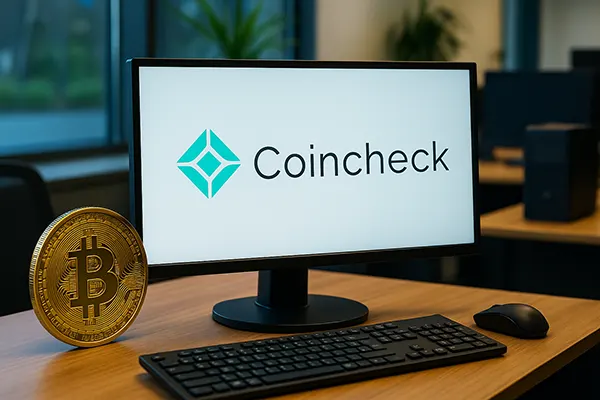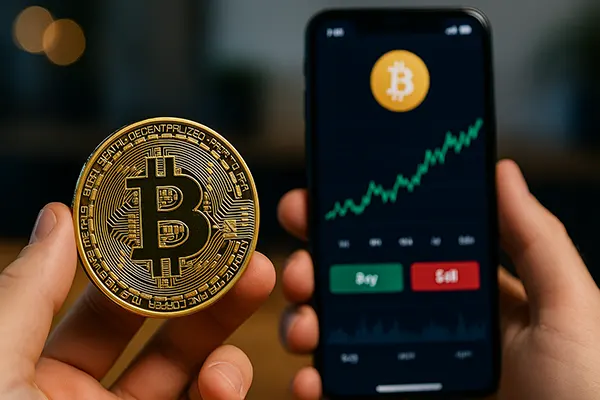
Coincheck (Japan): Is the Exchange Ready to Regain Trust After the Hack?
Coincheck, once one of Japan’s most trusted crypto exchanges, suffered a serious blow to its reputation in 2018 after a massive security breach led to the theft of over $500 million in NEM tokens. Since then, the company has taken numerous steps to rebuild its credibility. But has it done enough to reassure both retail and institutional investors in 2025? This article explores Coincheck’s journey post-hack and assesses whether the exchange is truly ready to restore trust in the crypto community.
Security Overhaul and Technological Improvements
Following the 2018 hack, Coincheck was acquired by Monex Group, a major financial services firm in Japan. This acquisition marked the beginning of a new era for Coincheck, with a strong emphasis on security and compliance. The exchange implemented rigorous KYC (Know Your Customer) procedures and strengthened internal risk management protocols to align with Japan’s Financial Services Agency (FSA) regulations.
Coincheck also upgraded its cold wallet storage systems and shifted the majority of its digital assets to secure, offline storage. The company integrated advanced multi-signature authentication and enhanced real-time monitoring to prevent suspicious transactions. These technical upgrades were critical to regaining its operating licence in Japan.
By 2025, Coincheck continues to update its infrastructure with the latest security frameworks, including AI-based fraud detection tools and ISO/IEC 27001-compliant data management practices. The company regularly undergoes third-party security audits and publishes transparency reports as part of its commitment to trust and accountability.
Regulatory Compliance and Institutional Partnerships
Regulatory alignment remains one of the pillars of Coincheck’s post-crisis strategy. The exchange is registered with the FSA and operates under strict supervision, complying with Japan’s Payment Services Act and AML/CFT guidelines. In 2023, Coincheck became one of the first exchanges in the country to be fully licensed to offer crypto derivatives under revised regulatory standards.
This compliance has opened the door to institutional collaborations. Coincheck has partnered with domestic banks and fintech firms to develop blockchain-based solutions and tokenised asset offerings. These alliances reflect the exchange’s growing institutional credibility, particularly among risk-averse investors who prioritise safety and compliance.
Furthermore, Coincheck has joined the Japan Virtual and Crypto Assets Exchange Association (JVCEA), contributing to policy discussions and shaping future frameworks for digital asset regulation. Its leadership role in industry governance adds another layer of legitimacy to its operations.
User Experience and Feature Expansion
Beyond security and compliance, Coincheck has significantly improved its user interface and feature set. The company redesigned its mobile and desktop trading apps to be more intuitive, adding advanced charting tools, real-time market data, and personal portfolio analytics. These features cater to both beginners and experienced traders looking for efficient tools.
In recent years, Coincheck introduced staking services, allowing users to earn passive income on assets like Ethereum 2.0, Tezos, and Cardano. It also expanded its list of supported tokens and introduced one-click fiat-to-crypto conversions, streamlining the onboarding process for new users in Japan.
Coincheck NFT Marketplace, launched in 2021, remains one of Japan’s leading NFT platforms in 2025, offering rare digital assets and exclusive collections. The marketplace has attracted local artists and gaming communities, helping the company diversify its product ecosystem and reduce dependence on crypto trading revenues alone.
Customer Support and Educational Outreach
Coincheck has made notable investments in customer service, offering 24/7 multilingual support through live chat, email, and dedicated phone lines. The average response time has improved substantially since 2022, according to internal performance metrics released publicly.
The exchange has also launched an education portal that features tutorials, webinars, and explainers on crypto basics, security tips, and market trends. These resources aim to promote informed trading and reduce the risk of scams and misinformation—critical issues in the volatile crypto environment.
For institutional clients, Coincheck provides dedicated account managers and tailored onboarding sessions. These services reinforce the company’s image as a client-centric and professionally run operation that values transparency and proactive engagement.

Public Sentiment and Market Position in 2025
Seven years after the infamous breach, public opinion on Coincheck has largely shifted. A 2025 survey by the Japan Blockchain Association revealed that over 70% of respondents viewed Coincheck as a “trusted exchange,” up from just 35% in 2019. This data underscores the success of its long-term reputation management efforts.
Coincheck is currently among the top five exchanges in Japan by trading volume, competing with the likes of bitFlyer, GMO Coin, and Rakuten Wallet. Its market share has grown steadily since 2021, fuelled by its diversification into NFTs, staking, and derivatives trading. It also benefits from strong branding and continued media coverage in mainstream financial outlets.
Despite its progress, Coincheck still faces scrutiny from parts of the crypto community that remain wary of past vulnerabilities. The company’s transparency, compliance, and investment in education have been essential in challenging this scepticism. Still, full redemption may depend on continued flawless performance over time.
Lessons Learned and the Road Ahead
Coincheck’s journey is a textbook case of crisis recovery in the crypto sector. The company not only addressed the root causes of its failure but also built a more resilient and user-focused operation. Its post-hack evolution demonstrates how regulated exchanges can restore trust through responsible governance and strategic reinvention.
Looking ahead, Coincheck plans to expand into cross-border services, particularly in Southeast Asia. It has begun preliminary talks with regulators in Singapore and Thailand to establish compliant frameworks for entry. The company also explores blockchain innovations such as tokenised real estate and carbon credits.
If Coincheck maintains its current trajectory, it could serve as a model for how exchanges can not only survive major setbacks but emerge stronger. The coming years will be critical in determining whether Coincheck can sustain this trust long-term and remain a leader in Japan’s competitive crypto landscape.
